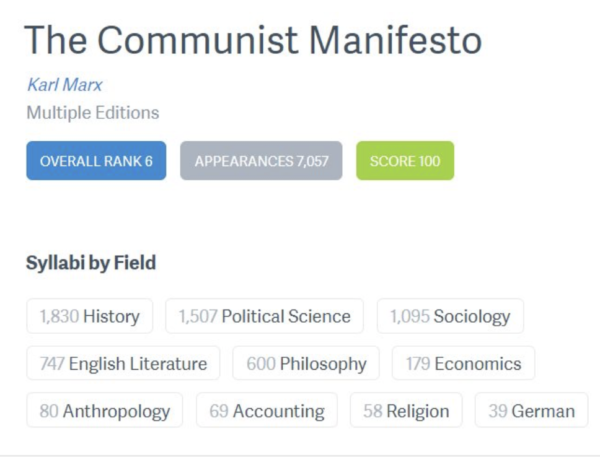• Climate change, we are relentless told, is the urgent existential threat to the entire planet, even more so than the nuclear arms race we all grew up with. Yet the Democratic candidate who tried to make this the centerpiece of his campaign, Washington Gov. Jay Inslee, was one of the first to drop out, having never broken 1% in the polls. Steve Milloy notes a pattern here about the most recent Democratic debate:
CNN and New York Times reporters did not ask any candidate any question about climate change and its offspring, the Green New Deal. It was a surprising omission. In the abstract, climate has polled as a very high priority among Democrat voters, so much so that in September, CNN televised a seven-and-one-half hour town hall meeting on climate for the candidates.
This week, both Bernie Sanders and Tom Steyer briefly protested the lack of attention to climate, but to no avail. A few other candidates mentioned the term “climate” in passing (Andrew Yang, Buttigieg and Amy Klobuchar), but the CNN and New York Times reporters did not take the bait. . .
The omission of climate did draw the attention of New York Times climate reporter Lisa Friedman. Noting a TV ad run during the debate by the climate skeptic Competitive Enterprise Institute (CEI) that criticized the Green New Deal, Friedman tweeted, “That CEI ad against the Green New Deal is officially the longest discussion of climate change during the 4th #DemDebate.”
You would think they would want at least to ask about the foreign policy dimension displayed this chart, which shows that China now burns more coal than the rest of the world combined:

With China threatening to end life as we know it on planet earth, just what do climate-conscious Democrats propose? When are we going to attack China’s coal plants?
Chaser:
China feeds coal addiction with 17 new mines this year
China is expanding its coal power infrastructure despite pledges to curb carbon emissions. Analysis reveals that the amount allocated to large infrastructure projects by Beijing has doubled this year, with airports and high-speed rail lines among 21 schemes allocated a total of £83.9 billion. Included in the new allocations is funding for 17 new coal mines across China, despite Beijing’s pledges to reduce reliance on the power source.
China’s pledges to reduce emissions appear to be about as credible as their pledges to abide by trade rules.
• Economist Phil Magness has put together these nifty charts based on open source data on college syllabi showing just where Karl Marx is most popular, and the fun part here is that he appears four times more popular in English than in . . . Economics. Heh.


Accounting?
Notice: All comments are subject to moderation. Our comments are intended to be a forum for civil discourse bearing on the subject under discussion. Commenters who stray beyond the bounds of civility or employ what we deem gratuitous vulgarity in a comment — including, but not limited to, “s***,” “f***,” “a*******,” or one of their many variants — will be banned without further notice in the sole discretion of the site moderator.